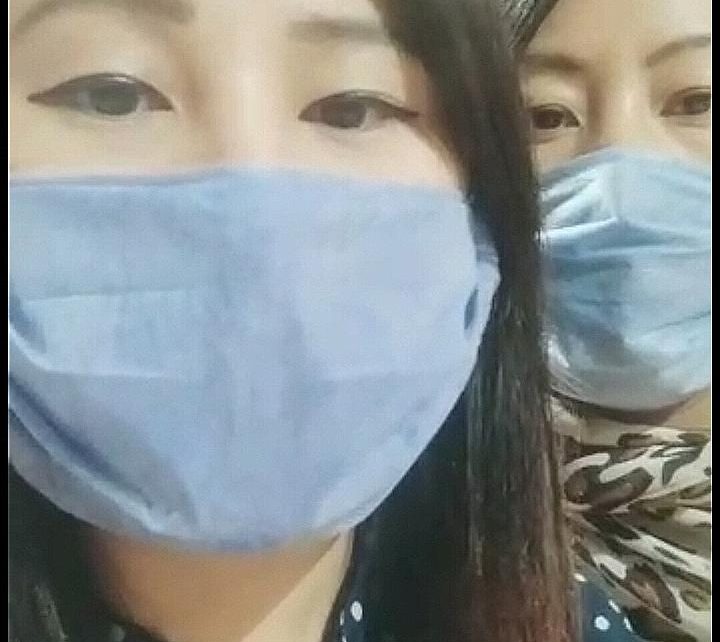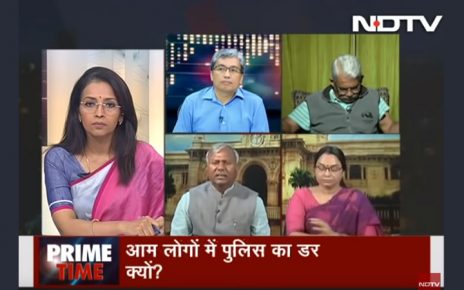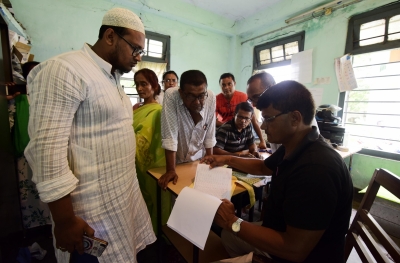The Straits Times
29 March 2020
Ms Cathy Akhropele thought she was going to have a regular Friday at work with the weekend to look forward to.
The last thing this young Indian woman, with no coronavirus symptoms, foreign travel history or exposure to someone infected with the virus, expected was to be accused of carrying the virus and being confined at a quarantine centre.
Yet, that was what she had to undergo when she spent more than 24 hours in a hospital room about a week ago with individuals who had recently returned from other countries and could have been possible carriers of the virus.
The reason? The way she looks.
Ms Akhropele, 24, is from Nagaland, one of India’s eight north-eastern states populated by many ethnic communities that share facial features with people from China.
However, someone in Ahmedabad, the capital of the western Indian state of Gujarat, where Ms Akhropele has lived for the past five years, thought she and her eight Naga colleagues were Chinese and infected with Covid-19.
The anonymous complainant called the police, and a cop showed up at their office on March 20 with an ambulance. The nine young people, who work for a dental insurance firm, were asked to get inside the ambulance despite their employer stating they were Indian.
Their ordeal is just one of the many coronavirus-related racist attacks on those from the north-east.
The Rights and Risks Analysis Group (RRAG), a Delhi-based think-tank, has documented 22 such instances reported in the media between Feb 7 and March 25.
While these attacks were prompted by the Covid-19 pandemic, people from India’s north-east have long been targeted mainly because of a poor understanding of their culture.
Many victims in these cases have had the term “coronavirus” thrown at them as a slur.
In one instance, a girl from the state of Meghalaya was forced to leave a restaurant in Delhi, following complaints and threats from other customers.
A woman from Manipur, another north-eastern state, was spat on in Delhi by a passer-by who crudely referred to her as “corona”.
Ms Akhropele and her colleagues were taken to the quarantine centre and kept there despite check-ups indicating they were healthy.
They were finally released the following night after a video shot by Ms Akhropele on her phone detailing their experience went viral, drawing condemnation and prompting intervention from senior police officials.
“Many people had gathered outside when we were being taken from our office. They were taking videos and it felt so weird,” Ms Akhropele told The Sunday Times.
The frequency of these attacks prompted the Indian government to issue an advisory on March 21, asking law enforcement agencies across the country to “take appropriate action in cases of harassment” of those from the north-east.
But this is of little help, said Mr Suhas Chakma, the director of RRAG.
“The police are at a loss, given the legal vacuum that exists when it comes to dealing with these acts of racial discrimination,” he said.
NEED FOR SPECIFIC LAW
The police are at a loss, given the legal vacuum that exists when it comes to dealing with these acts of racial discrimination.
MR SUHAS CHAKMA, director of Rights and Risks Analysis Group, on the advisory for police to take action in cases of harassment of those from the north-east.
MR SUHAS CHAKMA, director of Rights and Risks Analysis Group, on the advisory for police to take action in cases of harassment of those from the north-east.
Many communities from the country’s north-east are not recognised as scheduled castes or tribes, who benefit from a specific legislation – the Prevention of Atrocities Act – penalising discrimination against them.
“We need a similar specific law against racism that will empower the police to book perpetrators of racist attacks,” said Mr Chakma.
“But this is a problem that has to be addressed also by raising awareness about the origins and diversity of our people.”



